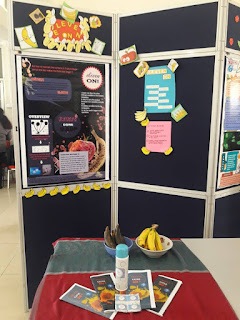Animal Specialist a.k.a Veterinarian
Hello peeps, we meet again. Yeaayy!!
Remember me ?
Haha, Just kidding.
So, for this entry I would to discuss with all of you about my dream career.
which is..
THE VET *eyes blushing*
 |
| This is so Fascinating :) |
Based on my knowledge, this veterinary courses are not widely developed in Malaysia as well as in United States of America and United Kingdom. This really breaks my heart a little. (T.T)
But, Malaysia still also have their own educational institutes for this veterinary practices which is in Universiti Putra Nalaysia itself and Universiti Malaysia Kelantan.
The first veterinary college was founded in Lyon,
France in 1762 by Claude Bourgelat. According
to Lupton, after observing the devastation being caused by cattle plague to
the French herds, Bourgelat devoted his time to seeking out a remedy. This
resulted in his founding a veterinary college in Lyon in 1761, from which
establishment he dispatched students to combat the disease; in a short time,
the plague was stayed and the health of stock restored, through the assistance
rendered to agriculture by veterinary science and art."
The professionalization of the
veterinary trade was finally achieved in 1790, through the campaigning of Granville Penn, who persuaded the Frenchman, Benoit Vial de St.
Bel to accept the professorship of the newly established Veterinary College in London. The Royal College of Veterinary Surgeons was established by royal charter in
1844.
Veterinary
science came of age in the late 19th century, with notable contributions from
Sir John McFadyean, credited by many as having been the founder of modern
Veterinary research.
.jpg) |
| Animals health should also be in our responsibility |
Veterinarians treat disease,
disorder or injury in animals, which includes diagnosis,
treatment and aftercare. The scope of practice, specialty and experience of the
individual veterinarian will dictate exactly what interventions they perform,
but most will perform surgery (of differing complexity).
Unlike in human medicine,
veterinarians must rely primarily on clinical sign, as animals are unable to vocalize symptoms as a human would.
In some cases, owners may be able to provide a medical history and
the veterinarian can combine this information along with observations, and the
results of pertinent diagnostic tests such as radiography, CT scans, MRI, blood test, urinalysis and others.
Veterinarians will sometimes
consider the appropriateness of euthanasia ("putting to
sleep") if a condition is likely to leave the animal in pain or with a
poor quality of life, or if treatment of a condition is likely to cause more
harm to the patient than good, or if the patient is unlikely to survive any
treatment regimen.
.jpg) |
| Awwww, so cute. |
FOCUS IN PRACTICES
- Exotic animal veterinarian - Generally considered to include reptile, exotic birds such as parrots and cockatoos, and small mammals such as ferrets, rabbits, chinchillas, anddegus.
- Conservation medicine - The study of the relationship between animal and human health and environmental conditions.
- Small animal practice - Usually dogs, cats, and other companion animals/household pets such as hamsters and gerbils. Some practices are canine-only or feline-only practices.
- Laboratory animal practice - Some veterinarians work in a university or industrial laboratory and are responsible for the care and treatment of laboratory animals of any species (often involving bovines, porcine species, felines, canines, rodents, and even exotic animals). Their responsibility is not only for the health and well being of the animals, but also for enforcing humane and ethical treatment of the animals in the facility.
- Large animal practice - Usually referring to veterinarians that work with, variously, livestock and other large farm animals, as well asequine species and large reptiles.
- Equine medicine - Some veterinarians are specialists in equine medicine. Horses are different in anatomy, physiology, pathology,pharmacology, and husbandry to other domestic species. Specialization in equine veterinary practice is something that is normally developed after qualification, even if students do have some interest before graduation.
- Food animal medicine - Some veterinarians deal exclusively or primary with animals raised for food (such as meat, milk, and eggs). Livestock practitioners may deal with ovine (sheep), bovine (cattle) and porcine (swine) species; such veterinarians deal with management of herds, nutrition, reproduction, and minor field surgery. Dairy medicine practice focuses on dairy animals. Poultry medicine practice focuses on the health of flocks of poultry; the field often involves extensive training in pathology, epidemiology, and nutrition of birds. The veterinarian treats the flock and not the individual animals.
 |
| We are the one who should protect and preserve these endagered species. |
VETERINARY MEDICINE CAREERS IN MALAYSIA
Most veterinarians in Malaysia work in either private or government practice. They also specialise in a particular breed of animal, like equine medicine or exotics or in a medical field like ophthalmology, oncology, pathology or dermatology.
Malaysia’s agriculture and food industry plays a major role in line with the country’s Economic Transformation Programme. Livestock specialists will be needed for Sabah’s dairy industry which is expanding rapidly and is now capable of producing 10 million litres of milk a year. And it has now become a major milk producer for the state’s school milk and 1Malaysia Milk programmes.
To date, Sabah is even exporting fresh milk to Brunei, Sarawak and the Peninsula and the industry has been given a further boost following the launch of the Keningau Integrated Livestock Centre by the Prime Minister Datuk Seri Najib Tun Razak.
 |
| Let us bring happiness to those creatures :) |
And yaah! that's all I can share with you guys.
I hope that these info might open your mind that veterinary medicine career is also important to maintain and protect the animals.
Never underestimate them!
Till we meet again next time.
Bye. :)









Ulasan
Catat Ulasan